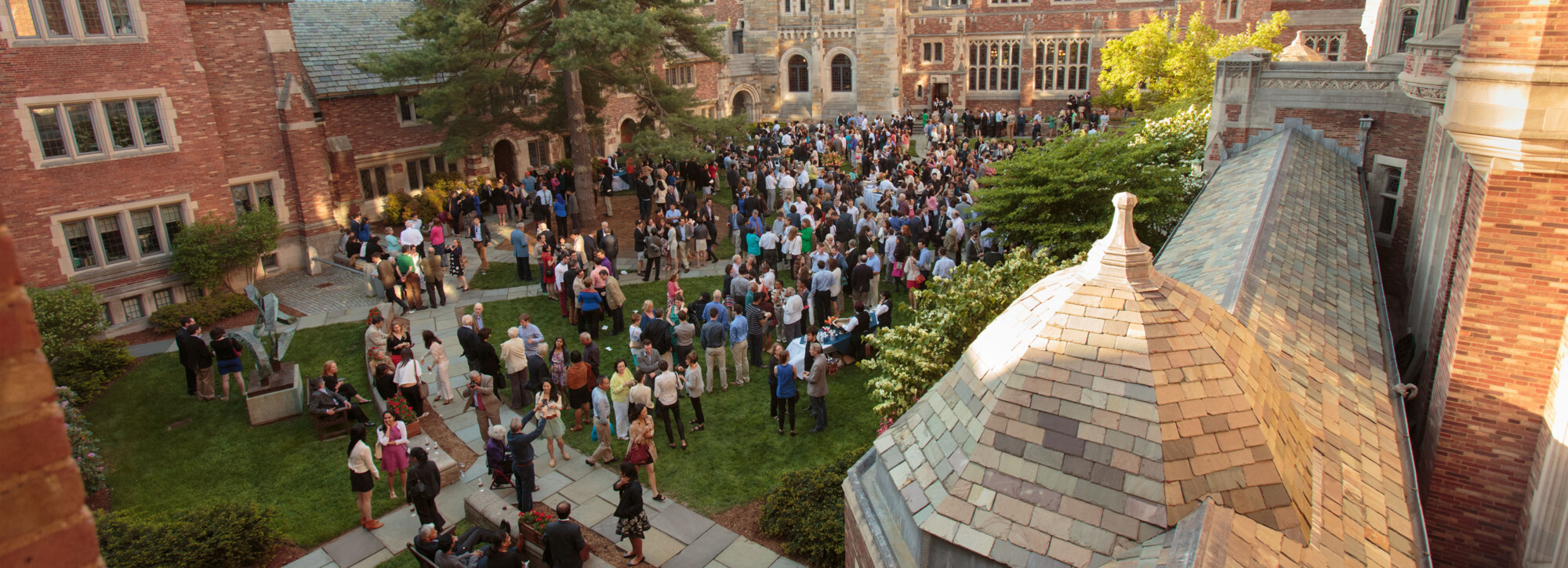
In a job just out of college, Mia Alvarez ’27 was already confronting the ethical challenges of artificial intelligence. Two years later as a new Yale Law School student, she hopes to gain the skills to take that work further.
The University of Florida graduate started as a business program manager in 2022 at Microsoft in New York City. Then came the launch of ChatGPT. Suddenly, questions about ethics of the AI chatbot were everywhere. Alvarez was soon in a new position with the global software giant’s division that provides secure technology products to the U.S. government. In this role, Alvarez conducted ethics reviews of AI systems built by Microsoft engineers. She then advised federal agencies including NASA and the Department of Veterans Affairs on ethical implementation of AI.
She came to realize that she could make more of an impact if she’d had legal training. Law school was the next step and Yale Law School’s many-sided approach to studying law was the right fit.
“Seeing AI in its infancy raised my awareness of the ethical problems in that field and inspired me to acquire the skills to solve them myself,” Alvarez said. “To me, there is no better place for that kind of interdisciplinary training than YLS.”
Weeks into her first year, Alvarez is excited about courses like Artificial Intelligence and Policy as well as learning about statutory interpretation and how legislation gets drafted.
Alvarez hopes to think about the role of regulation, the mechanism for controlling business competition she’s already encountered in her work, while learning about the law’s other means to that end, antitrust.
“It’s important to me to not just think about policy, but actually learn the intricacies of the law in order to become an effective practitioner,” she said.
Alvarez is eager to join Yale Law School’s clinical program, where students get hands-on experience in litigation by working on real cases as early as the spring of their first year. In the meantime, she is able work in real-world situations through the Temporary Restraining Order Project, in which student volunteers stationed at a county courthouse help people navigate the application process for a court-issued protective order. Alvarez got involved just four weeks into the term.
As a first-generation college graduate, Alvarez thought she might feel behind her peers inside and outside the classroom but was pleasantly surprised when she had no such feelings.
“I realized that YLS is set up to enable students like me to feel empowered,” Alvarez said. “The amount of resources, transparency, and people who genuinely dedicate their time to help you succeed is unmatched.”
In case settling into law school isn’t enough of a project, Alvarez has another. She’s also training for the next New York City Marathon in 2025, finding training routes in her New Haven neighborhood and going on runs with the Law School running group.
“It won’t be the easiest to balance training for a marathon with training to be a lawyer, but I think it will be such a blast,” she said.
